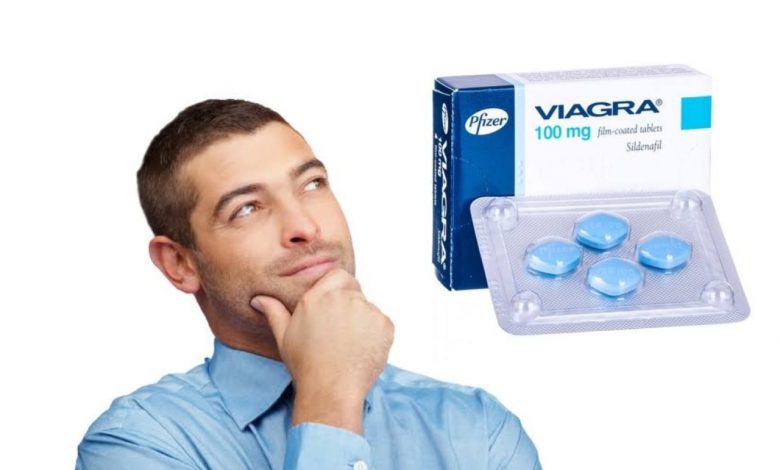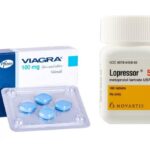Is Viagra Addictive?

Prescription drug abuse has reached an epidemic level globally. The prevalence of prescription drug abuse escalated rapidly with the COVID pandemic with the massive use of prescription or over-the-counter drugs for purposes other than those for which they are meant to be used, or in excessive amounts leading to social, physical, emotional, and job-related problems.
Psychological dependence is a term that describes the emotional or mental components of a substance use disorder, such as strong cravings for the substance or behavior and difficulty thinking about anything else.
You might also hear it referred to as “psychological addiction.” The terms “dependence” and “addiction” are often used interchangeably, but they aren’t quite the same thing:
- Dependence refers to the process by which your mind and body come to depend on a substance so you keep feeling a certain way. This tends to result in withdrawal symptoms when you stop using the substance.
- Addiction is a brain disorder involving compulsive substance use despite negative outcomes. It’s a complex condition with both psychological and physical elements that are hard (if not impossible) to separate.
When people use the term psychological addiction, they’re often talking about psychological dependence, not addiction.
However, it’s important to note that there are still wide variations in the way doctors use these terms.
What is Viagra?
Viagra is a brand of sildenafil approved to treat erectile dysfunction (ED). Erectile dysfunction, also known as impotence, is defined by difficulty getting and keeping an erection. It can be an embarrassing thing to talk about. It’s been reported that more than half of men between the ages of 40 and 70 experience some form of ED. So take comfort in knowing that you are not alone
Viagra belongs to a class of drugs called phosphodiesterase type 5 (PDE5) inhibitors and typically starts to work between 30 and 60 minutes after you take a dose of the drug. But Viagra itself doesn’t give you an erection or increase penile size. Instead, you’ll need to be sexually aroused in order for the drug to work.
Viagra comes as tablets that are taken by mouth. In most cases, it should be taken about an hour before sexual activity, but it can be taken 30 minutes to 4 hours beforehand. Viagra is available in three strengths: 25 mg, 50 mg, and 100 mg.
Can any factors affect how long it lasts?
Several important factors can influence how long Viagra lasts for you:
- Age. As you get older, your metabolism slows down. So Viagra may last longer as you age. In general, you may notice Viagra works for a longer period when you’re 65 or older.
- Diet and lifestyle. Eating a large meal or a lot of high-fat foods right before you take Viagra can keep it from being metabolized quickly or effectively. But this can also make it last longer as it’s metabolized along with your meal. Drinking alcohol or smoking can also decrease blood flow to your penis, making Viagra less effective or shorter-lasting.
- Dosage. The amount of Viagra you take affects how long it stays in your system. The smallest available dose, 25 milligrams (mg), won’t last as long as the largest available dose, 100 mg. But taking a higher dose isn’t always recommended, as it may not be safe for you.
- Medications. Some medications, especially antibiotics such as erythromycin (Ery-Tab), clarithromycin (Biaxin), and ciprofloxacin (Cipro), can interact with Viagra and affect how long it lasts.
- Overall health. Certain existing conditions can affect how long Viagra lasts and how well it works for you. Diabetes, nervous system conditions like multiple sclerosis (MS), and heart conditions like atherosclerosis (fat buildup in your blood vessels) can all make Viagra less effective and not last as long. Some kidney conditions may make Viagra last longer because of the condition’s effect on your metabolism.
- Psychological state. Feeling anxious, nervous, depressed, or stressed can all influence how your body responds to sexual stimulation. If you’re not relaxed or comfortable during sex, or if you have performance anxiety because of past sexual experiences, Viagra may not last long or be fully effective.
How many people use Viagra?
Erectile dysfunction apparently isn’t just an older man’s problem anymore. Young men, even some who are college-aged, are leading the surge in Viagra use. New research indicates that the use of Viagra skyrocketed 312% among men aged 18-45 between 1998 and 2002. There’s also been a twofold increase — 216% — among men between ages 45 and 55, says Tom Delate, Ph.D., whose research analyzed data on medical insurance claims by some 5 million patients across the country.
It’s true that erectile dysfunction is more common in older men, but many potential Viagra users are hardly senior citizens: About 40% of 40-year-old men in the U.S. have some degree of erectile dysfunction. Most Viagra users today, according to Pfizer, are in their early to mid-50s.
Is Viagra Addictive?
Yes, you can become psychologically dependent on Viagra. The symptoms associated with the psychological components of addictive behaviors or with psychological dependence are generally listed as:
- Cravings for Viagra
- Issues with anxiety that occur when someone tries to stop their addictive behavior
- Issues with depression when one is not using Viagra or tries to stop their addictive behavior
- Irritability and restlessness that occurs when someone is not taking Viagra or trying to quit
- Any other issues with mood swings that occur when one is not using Viagra or attempting to quit
- Appetite loss or increased appetite associated with not using Viagra
- Issues with sleep associated with quitting or not using Viagra
- Issues with uncertainty about being able to stop using Viagra
- Denial that one has a substance use issue
- Obsessing over obtaining or using Viagra
- Cognitive issues, such as issues with concentration, memory, problem-solving, and other aspects of judgment, etc.
The presentation of the symptoms that are most often associated with the development of psychological dependence is most likely viewed as being far more variable in their intensity than the symptoms associated with physical dependence on drugs; however, since there is no objective way to measure an individual’s subjective level of distress either emotionally or physically, this assumption cannot be empirically validated.
In fact, the most recent edition of the Diagnostic and Statistical Manual of Mental Disorders (DSM-5) removed the diagnoses “substance dependence” and “substance abuse” (aka addiction) since there was so much confusion. (Now both are combined into one diagnosis — substance use disorder — and measured from mild to severe.)
Viagra Side Effects
Viagra may cause side effects. Tell your doctor if any of these symptoms are severe or do not go away:
- blurred vision
- changes in color vision (seeing a blue tinge on objects or having difficulty telling the difference between blue and green)
- chest pain
- diarrhea
- difficulty falling asleep or staying asleep
- dizziness or lightheadedness
- erection that is painful or lasts longer than 4 hours
- fainting
- flushing (feeling of warmth)
- headache
- heartburn
- itching or burning during urination
- muscle aches
- nosebleeds
- numbness, burning or tingling in the arms, hands, feet, or legs
- rash
- ringing in ears
- sensitivity to light
- Some side effects can be serious. If you experience any of the following symptoms, call your doctor immediately:
- sudden decrease or loss of hearing
- sudden severe loss of vision (see below for more information)
- worsening shortness of breath
Some patients experienced a sudden loss of some or all of their vision after they took Viagra or other medications that are similar to sildenafil. The vision loss was permanent in some cases. It is not known if the vision loss was caused by the medication. If you experience a sudden loss of vision while you are taking sildenafil, call your doctor immediately. Do not take any more doses of Viagra or similar medications such as tadalafil (Cialis) or vardenafil (Levitra) until you talk to your doctor.
There have been reports of heart attack, stroke, irregular heartbeat, bleeding in the brain or lungs, high blood pressure, and sudden death in men who took sildenafil for erectile dysfunction. Most, but not all, of these people had heart problems before taking sildenafil. It is not known whether these events were caused by Viagra, sexual activity, heart disease, or a combination of these and other causes. Talk to your doctor about the risks of taking sildenafil.
Some patients experienced a sudden decrease or loss of hearing after they took sildenafil or other medications that are similar to sildenafil. The hearing loss usually involved only one ear and did not always improve when the medication was stopped. It is not known if the hearing loss was caused by the medication. If you experience a sudden loss of hearing, sometimes with ringing in the ears or dizziness, while you are taking sildenafil, call your doctor immediately. If you are taking sildenafil (Viagra) for erectile dysfunction, do not take any more doses of sildenafil (Viagra) or similar medications such as tadalafil (Cialis) or vardenafil (Levitra) until you talk to your doctor. If you are taking sildenafil (Revatio) for PAH, do not stop taking your medication until you talk to your doctor.
Viagra may cause other side effects. Call your doctor if you have any unusual problems while you are taking this medication.
If you experience a serious side effect, you or your doctor may send a report to the Food and Drug Administration’s (FDA) MedWatch Adverse Event Reporting program online (http://www.fda.gov/Safety/MedWatch) or by phone (1-800-332-1088).
Buying Viagra and other erectile dysfunction medications online
Treatments for erectile dysfunction are big business, and online scams abound. If you do buy medications over the internet:
- Check to see if an online pharmacy is legitimate. Never order medications from an online pharmacy if there’s no way to contact the pharmacy by phone, if prices seem too good to be true or if you’re told no prescription is necessary. Some illegal businesses sell counterfeit versions of legitimate medications, which can be ineffective or dangerous. In the U.S., the National Association of Boards of Pharmacy can tell you whether an online pharmacy is licensed and in good standing.
- Make sure you get the right prescription and dose. When you order medications — and when you receive them in the mail — make sure they’re the exact dose and type prescribed by your doctor.
- Don’t be fooled into buying ‘herbal viagra.’ Never take any medications that claim to be the “herbal” or nonprescription equivalent of an oral medication for erectile dysfunction. These aren’t effective alternatives, and some contain harmful substances.





